Why we love Botswana
River, desert, savannah – Botswana holds every safari landscape in one. Dawn mist curls over the Okavango Delta, mokoro boats glide past bathing elephants and dusk brings the quiet shimmer of Kalahari stars. It’s the ultimate blend of thrill and stillness. Here’s what to know before you travel.
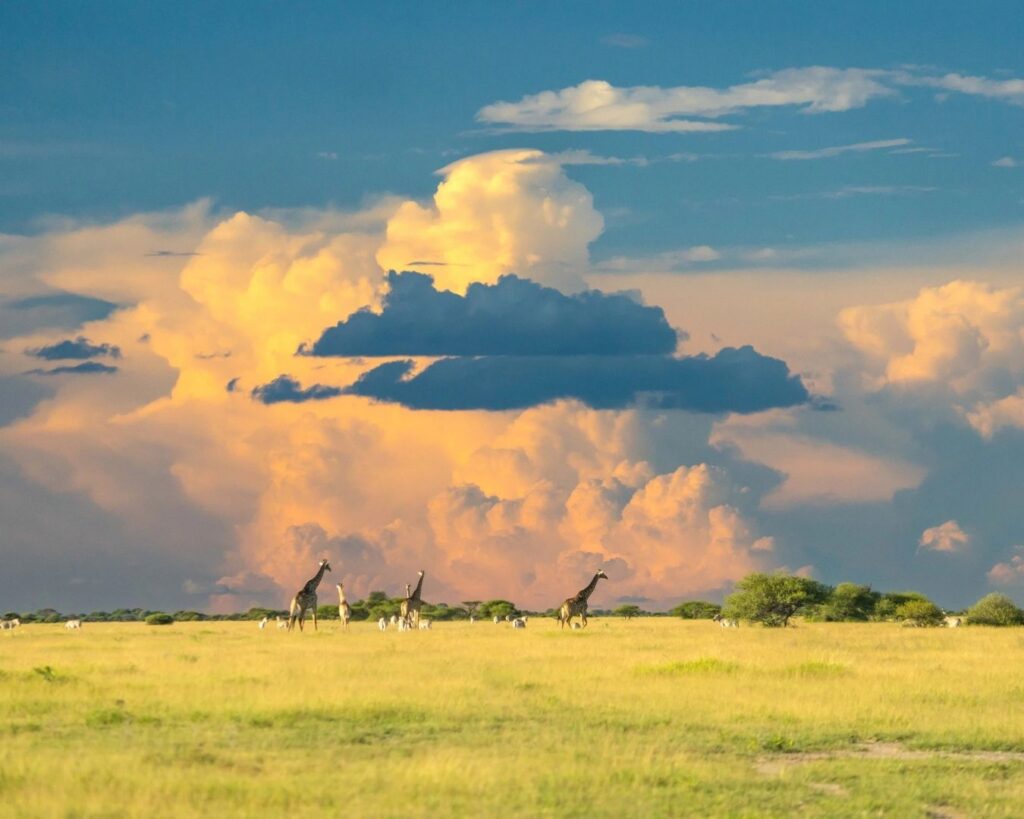
Entry requirements
UK and US passport holders do not require a visa for entry, but your passport must be valid for at least six months from the date you arrive and have at least two blank pages. Please check your own government’s travel advice if travelling from elsewhere.
Children under eighteen travelling into or through Botswana must present a certified copy of their full unabridged birth certificate (issued within the last three months) along with a valid passport. If travelling with only one parent, the other parent must provide an affidavit giving consent for travel.
For adults travelling with children who are not their own, an affidavit from the child’s parents or guardians granting consent is required.
Health and safety
We are not certified to give medical advice, so we recommend consulting your doctor or a travel health clinic to review your vaccination history and discuss any additional vaccinations needed for your trip. You can find useful information on TravelHealthPro for recommended vaccines and advice on bringing medication into the country.
Yellow Fever vaccination is mandatory if you are arriving from or transiting through a country where Yellow Fever transmission occurs.
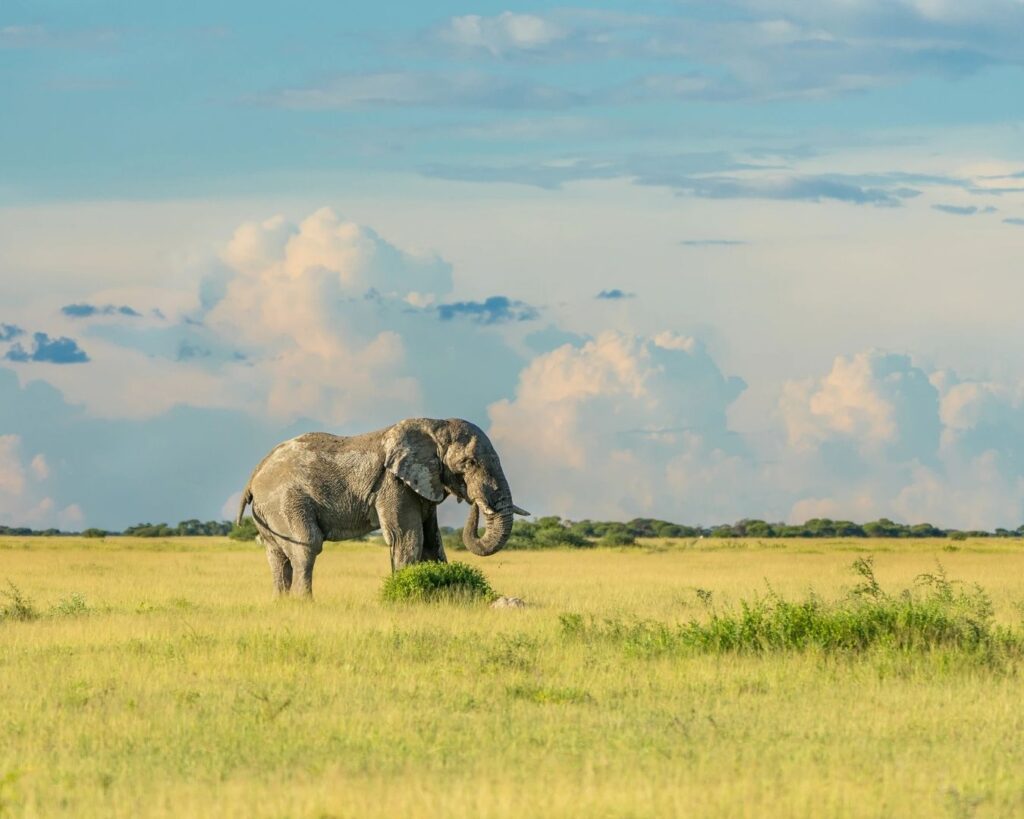
Getting around
We are able to arrange your transfers for you, just let us know your flight number, and we’ll plan the route and let you know the cost. For multi-stop trips, we can also arrange your transfers between hotels/regions.
Internal flights can have multiple stops, so you may have a couple of touchdowns before reaching your destination. Schedules are announced on the day, and our local partners will inform you of this information and timings locally. The e-tickets for your internal flights are provided to you beforehand and will also be given to you locally so you do not need to check-in in advance.
Baggage
Across Sub-Saharan Africa, there are specific baggage allowances for each country and sometimes even different airlines. See below for Botswana’s baggage allowances.
Airline: Mack Air
Weight allowance: 20 kg total (including hand luggage), in soft-sided bags
Dimensions: 30 cm x 35 cm x 70 cm
Airline: Safari Air
Weight allowance: 20 kg total (including hand luggage), in soft-sided bags
Dimensions: 25 cm x 30 cm x 62 cm
What is a soft-sided bag? The aircraft requires light bags as they are small planes, so you will need luggage made from flexible material e.g. not hard-sided.
Packing tips
Head to our What to Pack on Safari blog for our top packing tips for your safari adventure. We strongly recommend carrying any medication and overnight essentials in your hand luggage in case of delays or lost bags.
Most lodges and camps will offer laundry services with a 24-hour turnaround, but please note that, for cultural reasons, most will not launder women’s underwear.
Climate
Botswana has a mostly arid climate with summer rains in the north between November and March.
The best time for game viewing is during the dry winter months from April to October, with mild days averaging around 25°C. Nights, especially in the desert, can become very cold, so pack warm layers for early morning game drives, as well as hats, gloves and a good fleece. The sun is strong throughout the year, so bring sunglasses, sunscreen and a wide-brimmed hat.
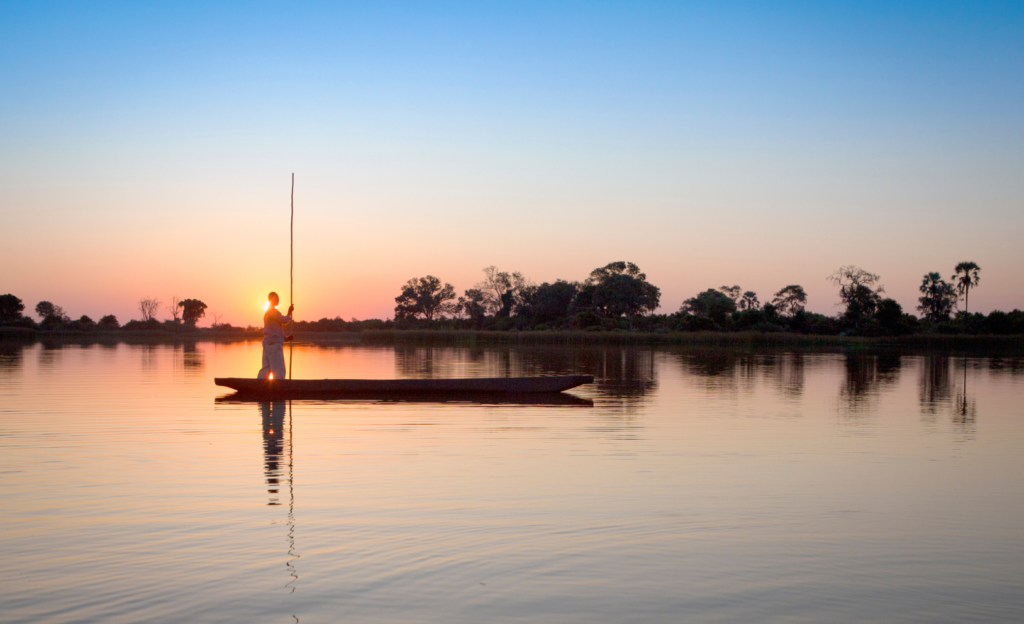
Laws and customs
Here are our top tips for adhering to Botswana’s laws and customs, but please check the government guidelines for further details.
– Always carry some form of identification with you, a photocopy of your passport is usually sufficient.
– Taking photographs or using video equipment near military or government buildings is prohibited. Always ask permission before photographing people, especially in rural areas or traditional communities.
– Respect local traditions and customs, particularly when visiting villages or attending cultural ceremonies.
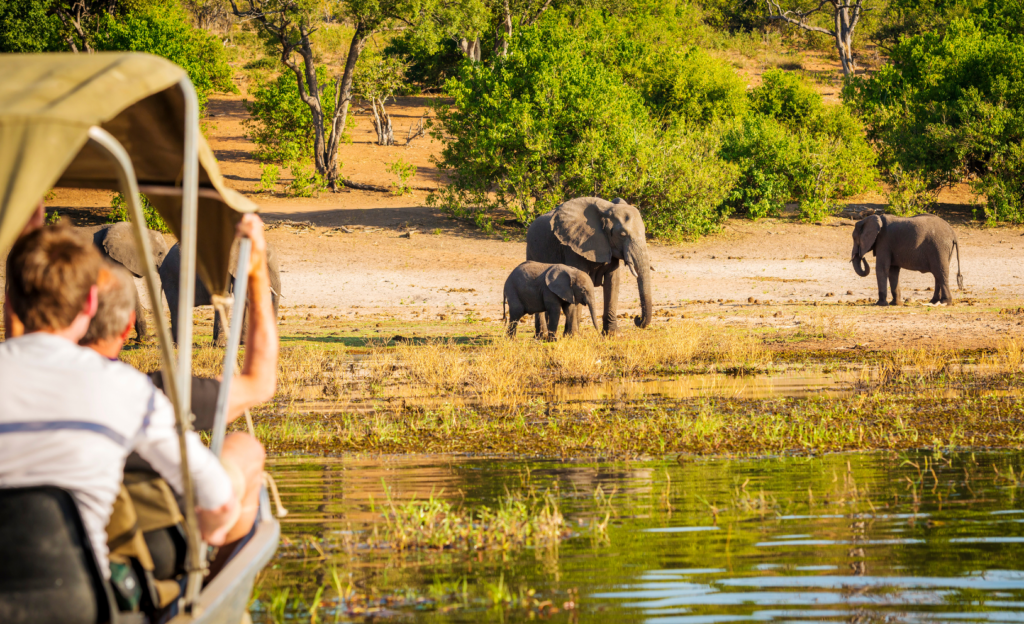
Tipping
Tipping practices vary around the world, so it’s always best to check on arrival what the preferred process is. The guide below offers a simple benchmark to help you plan. Amounts are listed in USD, which is widely accepted and works well as a standard, though some lodges may prefer local currency.
Safari in Botswana
– Safari guide: $20–25 per traveller per day (give directly at the end of your stay).
– Lodge staff: $20–25 per traveller per day (usually placed in a communal tip box).
General Travel
– Restaurants: Around ten per cent of the bill.
– Activities: $20 per traveller for a half-day activity, $40 per traveller for a full-day activity.
– Transfers: $10–20 per transfer depending on the distance.
Money matters
The local currency is the Botswana Pula (BWP), which is not available outside the country. We suggest bringing US dollars in small denominations – these are widely accepted, particularly in lodges and for tipping.
Avoid older US dollar notes (with smaller portraits) as they are often not accepted.
Credit cards (Visa and Mastercard) are generally accepted in hotels and lodges but not in remote bush camps. A service fee of around five per cent often applies.
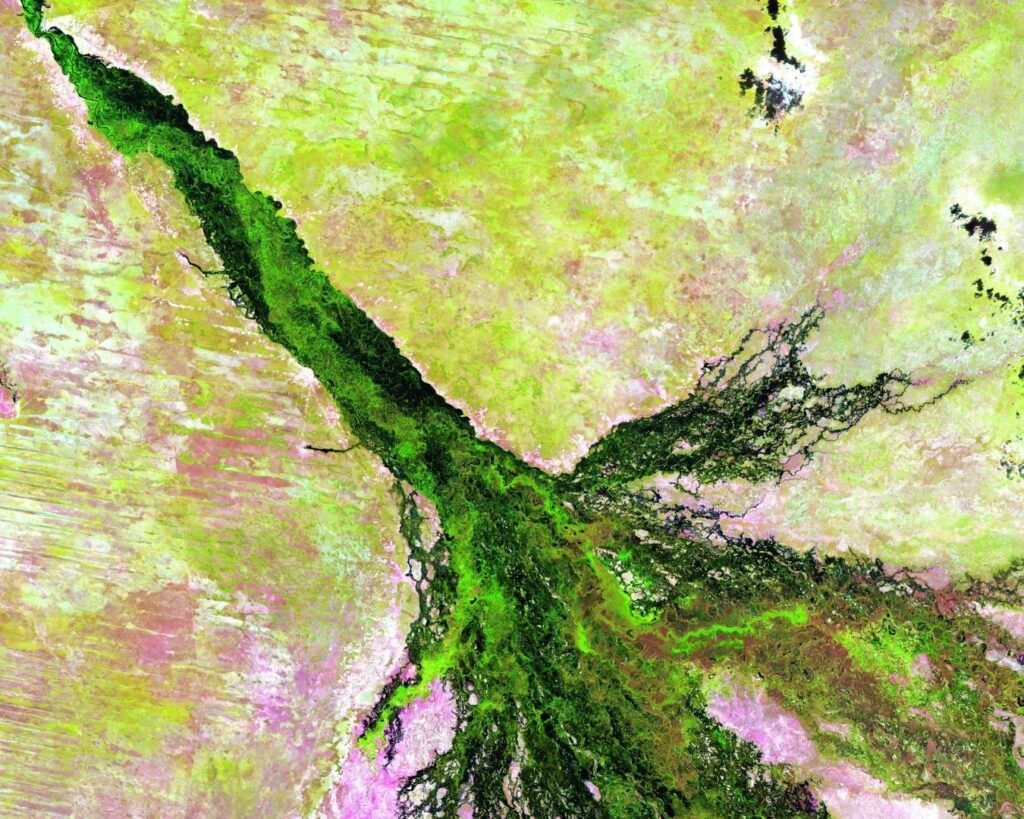
Practicalities
Plug type: Botswana uses plug types D and G (the same three-pin rectangular plug as in the UK, and a three-round-pin type common in southern Africa). A universal adapter is recommended.
Flights and time zone: Direct flights to Botswana are limited, often connecting via Johannesburg or Cape Town. The average flight duration from London to Maun, via Johannesburg, is around ten hours. Botswana operates on GMT +2 and does not observe daylight saving time.
Language: The official language in Botswana is English, widely spoken throughout the country and Setswana (or Tswana) is considered the national language.
Here are a few useful Setswana phrases:
Hello – Dumela
Thank you – Ke a leboga
Please – Tswee-tswee
Yes / No – Ee / Nnyaa
Excuse me – Ntshwarele
Where is the bathroom? – Toilet e kae?
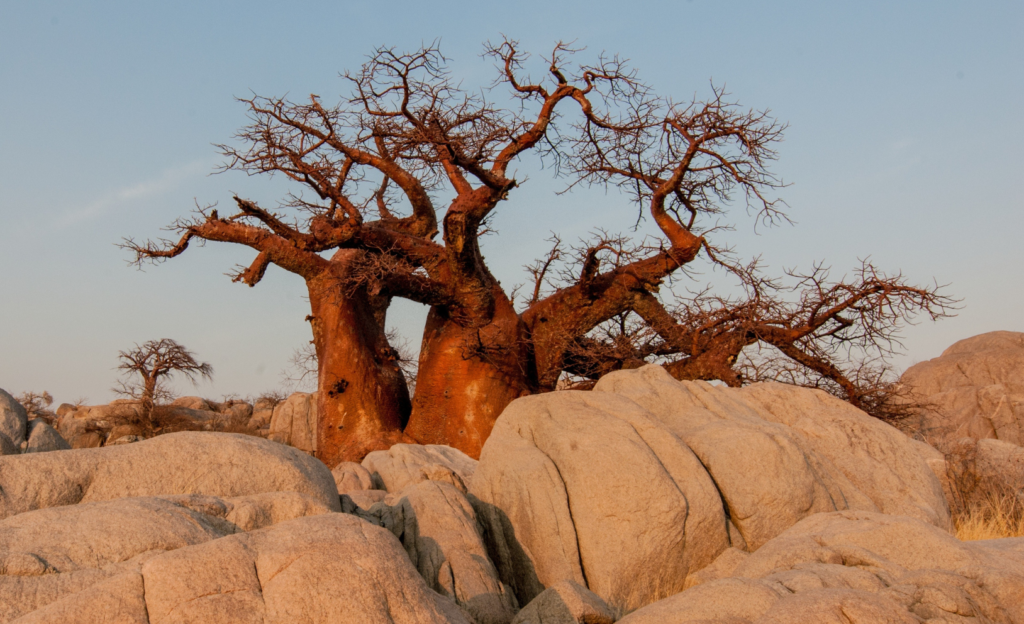
Food and drink
Botswana’s cuisine offers visitors hearty and flavour-packed dishes. Expect to see staples such as seswaa (slow-cooked, shredded beef), dikgobe (a mix of beans, maize, and pulses), and fresh seasonal vegetables often served alongside maize-based pap.
On safari, many lodges elevate these local flavours with international influences, so you can enjoy a mix of authentic Botswanan dishes and Western classics. Game meat such as kudu or impala often features on the menu.
Tap water is not recommended for drinking in Botswana. Bottled or filtered water is readily available at lodges and camps, and we advise sticking to these throughout your trip.
Keep connected
Local SIM cards can be purchased at airports or in towns; Mascom and Orange are the main providers. Alternatively, e-SIMs are available in advance through services like Airalo.
